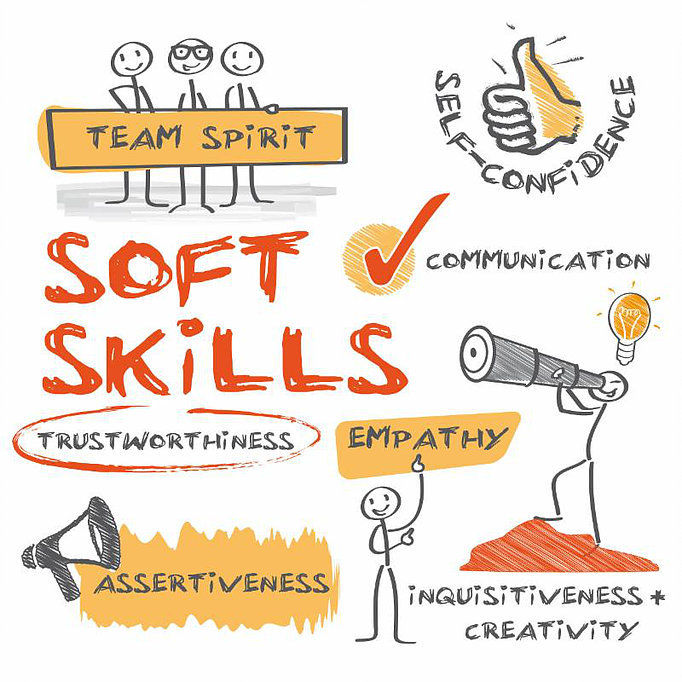One of the most important ongoing tasks you’ll have as a business leader is hiring. It’s not easy, it’s a time-consuming process with monetary and reputational consequences if you make a bad hire.
Taking the time to find the right person – someone who is not just technically capable but also a good fit for the company – is important. Companies that are successful in hiring have a process that includes attracting high-quality candidates, evaluating them in several different areas, and taking the time to get to know the people in different ways. Here are nine tips to build and improve your own hiring process.
1. Write better job descriptions.
If you’re not careful, the way your job posting is written can deter great candidates from applying. Many companies write detailed descriptions with long lists of responsibilities and requirements, but a study by researches in the United States and Canada found that this can actually alienate qualified employees, the Wall Street Journal reported.
In the study, researchers rewrote 56 job ads to emphasize two different approaches: the “Needs-Supplies” approach, which focuses on what the company can do for the candidate, and the “Demands-Abilities” approach, which focuses on what the company expects from the candidate. Of the 991 responses, applicants who responded to “Needs-Supplies” job listings were rated higher than those who responded to the “Demands-Abilities” ads. The more successful posting included statements such as “We seek to provide employees with constructive feedback to foster their career growth,” and “You will have many opportunities to collaborate with talented people.” The takeaway? Put more of the focus on what your company can do for potential employees, and you’ll attract candidates who better fit your needs.
2. Embrace digital trends and social media.
Most people want to work for companies that keep up with the latest tech trends. A survey by MIT and Deloitte found that the vast majority of respondents, ages 22 to 60, want to work for digitally enabled organizations, which means businesses will have to stay ahead of the curve in order to retain employees and attract new ones.
Another good way to embrace the digital side is to make sure your career site is mobile-friendly. According to a 2015 Pew Research survey, nearly 30 percent of American adults have used their smartphone in some way for their job search, including browsing job listing, filling out online job applications and creating a resume or cover letter.
3. Focus on soft skills.
Although the right skill set may seem like the most important factor in whether a candidate is a good fit for a particular role, the trust is that skills can be acquired, but personalities cannot.
“Social intelligence – being able to navigate social situations and work well with others – is very important,” said Maynard Brusman, a San Francisco -based psychologist. “Don’t become pigeonholed into thinking the person with the exact necessary experience is the right person for the role. Consider soft skills – like interpersonal skills, communication skills, thought processes and emotional intelligence – because they matter.”
4. Check social media profiles.
Like most employers, you’ll probably do a background check (or at least a quick Google search on the candidate’s name) to see what comes up about that person online. But if you’re not looking through the candidate’s social media profiles, you could be missing a key way to find out more about the individual as a person and an employee – for better or for worse.
While it’s legally risky to allow a candidate’s social media activity to factor into your hiring decisions, it can give you a better picture of someone you’re interested in hiring. Social media can be used as a skills assessment, especially if a candidate has professional blog posts or portfolio work.
5. Fit the personality to the job.
A candidate’s personality is another important factor to consider. For example, a trait such as empathy would likely be much more important for a nurse or a social worker that it would be for a tax attorney or a computer programmer. “What kind of person you hire depends on [the] culture of organization and the kind of job,” Brusman said. “A great person will all kinds of skills may be [a] good fit for one and [a] poor fit for another, simply based on their personality type.”
6. Improve your interviews.
A study by Leadership IQ found that failures exhibited by new employees may result from flawed interview processes. Eighty-two percent of the 5,000 managers surveyed reported that the interviewers were too focused on other issues, too pressed for time or lacked confidence in their interviewing abilities to pay attention to red flags candidates exhibited during the interview process.
According to Leadership IQ CEO Mark Murphy, this is because the job interview process generally focuses on making sure new hires are technically competent, whereas other factors that are just as important to employee success – like coachability, emotional intelligence, temperament and motivation – are often overlooked.
7. Ask the right kinds of questions.
You can’t come right out and ask someone if they’re a jerk, but you can ask questions that will help you figure it out on your own.
“If you ask someone why they left their last job and they blame someone else, it’s important to follow up with another question,” said Paul Harvey, a professor of management at the University of New Hampshire. “If they continue to blame external forces for their problems, you may want to look for another employee.”
So what are some other great questions to ask? John Schwarz, CEO and founder of workforce analytics company Visler said answers to questions such as, “Who are you going to be 10 years from today?” and “What makes you get up in the morning and do what you do?” can tell you a lot about a candidate’s drive and ambition.
8. Let candidates interview you, too.
Allowing prospective employees to interview you will give you a chance to see what’s important to them, Brusman said. Plus, it will give candidates a chance to determine that they want to keep pursuing a job at your company, or to decide that it’s not the right fit for them.
“Be open and honest about what it’s going to be like to work for your company,” Brusman said. “You want to give a realistic preview of the work environment.”
9. Keep an eye on your reviews.
Potential employees often seek insider information about companies they want to work for, and this includes salary estimates, interview tips and reviews from current and former employees from sites such as Glassdoor. According to Glassdoor, 46 percent of its members read company reviews before they even speak to a recruiter or hiring manager. Top candidates may not even apply in the first place if they don’t like what they see: 69 percent of job seekers said they would not take a job with a company that had a bad reputation, even if they were currently unemployed.
On the flip side, 94 percent of respondents said they’re likely to apply for a job if they employer actively manages the employer brand by responding to reviews, updating the company’s profile, and sharing updates on the company’s culture and work environment.
Based on Glassdoor’s data, two actions that draw in candidates include being active on review websites and posting accurate information. And if you have a lot of negative reviews from former employees, it may be time to work on your company culture before you try to fill any open positions. Doing so can help improve employee reteition and lead to more positive reviews that will attract quality employees.
Source: Marci Martin, Contributing Writer for Business News Daily. Additional reporting by Brittney Helmrich and Nicole Fallon Taylor.






